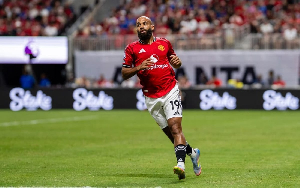It is almost a sing-song to talk about bridging the digital divide in order to enable Africa catch up with the trend of globalisation which is principally being engineered by the Information and Communications Technologies (ICTs).
The scepticism stems from the fact that the hurdles seem so many that the resolve by African countries to bridge the divide may sound like wishful thinking. Yet, three separate events took place in Yaounde on Monday 27 January 2014 that can easily converge on the multifarious problem that Africa faces in catching up with modern communication challenges.
The two-day 7th session of the African Union of Broadcasters, AUB the meeting on the Internet Exchange Point in Africa and the meeting of the Technical Committee in charge of the Digital Switch Over (DSO) in Cameroon may look different, but the issue of how Africa wants to surmount modern telecommunication barriers is recurrent at the gatherings.
The simple fact is that in spite of the numerous advantages that can be derived from embracing ICTs, the setbacks that ought to be handled by Africans themselves are not so easy to tackle, let alone those being posed by advanced countries which are out to defend their economic, technological and strategic lead.
An ordinary African mind would find it hard to accept that watching a football match during the African Nations Cup on television in Africa is actually so expensive to the broadcast media organ in terms of broadcast rights. In the same vein, the absence of an Internet Exchange Point in Africa means that the cost of communication via the World Wide Web has to take into consideration transit fee through a Western country via satellite.
In other words, Internet communication between two African countries must transit through the Western World before getting back to Africa. A similar setback has been evident with the DSO programme which radio broadcasting technology must have to grapple with as from 17 May 2015. The process requires a change from the "outdated analogue system to one based on equipment capable of transmitting and receiving digital signals."
However, neither is the digital system manufactured in Africa nor can it go operational on the continent without sustained assistance from Western countries. Thus, in addition to spending the scarce financial resources on the African continent to acquire digital technology to meet up with modern exigencies, there is also the uphill task of asserting the African identity in an ever-challenging communication environment that is completely dominated by others.
The DSO operation is today non-negotiable and the meeting of over 30 members of the African Union of Broadcasters (AUB) that ended in Yaounde yesterday, 28 January 2014, looked at the crucial problem as one of its main focuses. That in itself was a laudable initiative, given the titanic nature of the problem.
However, the global and strategic importance of the numerous stumbling blocks that the African continent faces in bridging the digital divide makes one wonder whether a stronger political will by African leaders is not the best way out. The goodwill of AUB is obvious, given the albatross that hangs on the neck.
But looking back at the fact that the AUB was created in 2006 from the ashes of the African Union of National Radio and Television , URTNA which failed to tackle the obstacles due to the stakes involved, it is obvious that every available possibility to avoid the errors of the past is indispensable today. Africa cannot afford to continue losing so much in financing already wealthy nations in an attempt to join a global communication train whereas African leaders could come together and solve the problems at a much less cost.
The bedevilling divisive posture Africa has often presented in the face of serious issues affecting the continent may need to be closely examined at this age of digitalisation. Even the DSO problem could be made cheaper if African countries could team up according to regional blocs. May be someone would be able to make African leaders accept that the time has come to tackle certain issues of common concern as a group, failing which the continent will continue to lag behind in the face of global trends.
Actualités of Wednesday, 29 January 2014
Source: Cameroon Tribune












